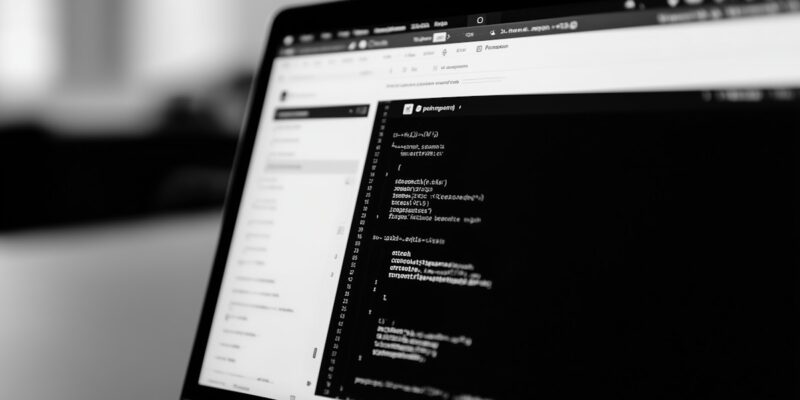How AI Recruiting Tools Are Revolutionizing Tech Hiring—and Why It Matters Now
There’s no secret: the tech hiring landscape is evolving fast. With digital transformation reshaping how products are built and teams are scaled, relying solely on traditional recruitment methods is no longer sustainable. Artificial Intelligence (AI) is stepping in—not just as a trend, but as a core engine powering the future of engineering talent acquisition.
AI tools in recruiting have been evolving for nearly a decade, reflecting the industry’s growing experience and maturity in leveraging these technologies.
From automating repetitive tasks to identifying high-potential developers who might be overlooked, AI recruitment software are helping companies streamline operations, reduce bias, and enhance the candidate experience—while also contributing to broader, strategic business outcomes. This shift is especially vital for fast-growing tech companies racing to secure top-tier developers in competitive markets.
Why Traditional Tech Hiring Falls Short
In today’s engineering teams, hiring is no longer just about filling roles—it’s about building high-performing, resilient squads that can scale with your codebase and product roadmap. As explored in our article on tech hiring challenges and strategies, companies often face misalignment between hiring urgency and quality standards, especially in fast-paced environments. These challenges underscore the importance of leveraging AI-driven processes to streamline and strengthen decision-making.
Manual screening, subjective evaluations, and delayed outreach have long hindered tech recruitment, placing a significant burden on HR teams who must manage these time-consuming and often inconsistent tasks. Inefficient hiring can lead to unproductive teams, delayed feature rollouts, and high turnover among developers. AI in recruitment addresses these issues by leveraging data and automation to deliver faster, smarter, and more inclusive hiring outcomes.
But AI isn’t just about automation—it’s about enabling tech recruiters to make sharper, more strategic decisions. That’s where agentive AI comes in.
What Is AI in Recruitment?
Artificial intelligence (AI) in recruitment refers to the use of machine learning, natural language processing, and data-driven analytics to optimize every stage of the hiring journey—from sourcing software engineers and parsing developer resumes to candidate engagement, technical vetting, and offer delivery.
One of the most powerful developments in this field is agentive AI. These AI agents operate semi-autonomously, executing complex recruitment tasks while collaborating with human recruiters. Imagine an AI that not only filters resumes but also evolves its criteria in real time based on engineering team feedback. That’s agentive AI in action—context-aware, proactive, and adaptive.
This agentive layer is transforming tech recruiters into talent strategists, allowing them to shift from reactive firefighting to proactive engineering team design.
Key Benefits of AI in the Tech Hiring Process
1. Unmatched Efficiency
AI recruitment software automates repetitive, time-consuming tasks like screening developer resumes, crafting outreach emails, and coordinating technical interviews. These tools can also pre screen candidates to quickly filter out unqualified applicants, making the initial evaluation process more efficient. A report by Oleeo found that companies using AI in early-stage hiring reduce their time-to-hire by up to 40%.
This is particularly valuable in tech hiring, where specialized roles—like machine learning engineers or DevOps leads—often remain unfilled for weeks. AI helps compress timelines without compromising quality. Additionally, AI can rank candidates based on specific job requirements or criteria, further streamlining the selection process.
2. Better Developer Matching
Machine learning models analyze thousands of data points—languages, frameworks, GitHub activity, prior roles—to determine engineer-role fit more accurately than manual screening. AI recruiting tools use these insights to match candidates to job descriptions by evaluating each candidate’s skills and experience, ensuring a precise fit between candidate profiles and open roles.
This means fewer mismatches, stronger onboarding, and teams that ship faster. These tools help match candidates to the right job descriptions, improving overall hiring accuracy. It also uncovers high-potential developers who may not tick every box, but demonstrate adjacent skills and rapid learning ability.
3. Reduced Unconscious Bias
When designed responsibly, AI in recruitment helps minimize bias by focusing on skills and potential, not on demographic factors. These tools can also help identify and attract diverse candidates, supporting inclusivity in tech hiring. Artificial intelligence tools trained on inclusive datasets help tech teams become more diverse and equitable—key to both innovation and retention.
4. Enhanced Candidate Experience
Developers value speed, clarity, and respect. AI enhances candidate interactions through personalized outreach, chat-based scheduling, and real-time feedback loops. These AI tools also streamline the interview process, making it more efficient and seamless for both candidates and recruiters. This not only improves engagement but helps companies stand out in a highly competitive market. These tools are especially valuable for early career hiring, where managing large applicant volumes and ensuring efficient screening and engagement are critical.
AI Recruiting Solutions to Know for Efficient Tech Hiring
With so many AI solutions available, how do you know which ones actually support better tech hiring? Modern agents leverage talent acquisition AI to transform core talent acquisition functions, such as sourcing, screening, and candidate engagement, making recruitment workflows more efficient and effective. Here’s a breakdown of some of the leading AI-powered platforms that help IT recruiters and hiring managers find, qualify, and secure top technical talent.
Mara by BEON.tech
Overview
Mara is an AI-powered recruiting agent developed by BEON.tech. Rather than being a general-purpose tool, Mara is purpose-built for tech hiring—designed to help you go from job spec to qualified engineer with minimal friction.
Key Features
- Smart resume filtering for engineering roles
- Automated vetting (code, culture, communication)
- Proactive sourcing and outreach
- Red flag detection and gap analysis
Mara stands out because of its agentive nature: it learns from every interaction, adapts to your hiring goals, and executes recruitment tasks autonomously while keeping humans in the loop.
Pros and Cons
| Pros | Cons |
|---|---|
| Agentive AI that evolves with your tech stack | Focused on engineering roles only |
| Combines automation with recruiter input | Not built for non-technical functions |
| Full-cycle AI-powered hiring | Limited integrations (for now) |
Eightfold AI
Overview
Eightfold uses deep learning to match talent with opportunities, even identifying passive candidates. It excels at talent sourcing by leveraging AI to discover candidates who may not be actively seeking new roles.
Features
- Talent sourcing
- Talent rediscovery
- Diversity analytics
- Internal mobility
- Skill mapping
Pros and Cons
| Pros | Cons |
|---|---|
| Strong DEI features | Expensive for smaller teams |
| Ideal for large databases | Complex setup process |
| Predictive matching | Requires significant training data |
HireEZ
Overview
Formerly Hiretual, this tool specializes in outbound AI sourcing.
Features
- 750M+ candidate profiles
- Contact enrichment
- Predictive analytics
- Team collaboration tools for real-time coordination and sharing candidate information among hiring teams
Pros and Cons
| Pros | Cons |
|---|---|
| Excellent for passive sourcing | Limited screening capabilities |
| CRM/ATS integration | Learning curve for UI |
| Robust contact database | Cost can scale with usage |
Paradox (Olivia)
Overview
Paradox’s Olivia is a conversational AI chatbot for pre-screening and interview scheduling.
Features
- Mobile-first engagement
- AI scheduling assistant
- FAQ automation
Pros and Cons
| Pros | Cons |
|---|---|
| Great for high-volume hiring | Less suited for senior roles |
| Enhances candidate response time | Limited scoring depth |
| Integrates with popular ATS | Needs upfront config |
Textio
Overview
Textio uses AI to improve job ad writing and reduce bias. It helps companies create more effective and inclusive job posts by leveraging AI-driven language analysis.
Features
- Real-time bias detection
- Copywriting enhancement
- Performance scoring
Pros and Cons
| Pros | Cons |
|---|---|
| Promotes inclusive language | No sourcing capabilities |
| Enhances employer brand | Narrow use case scope |
| Easy to adopt | Focused only on content |
Best Practices for Implementing AI in Tech Hiring
Successfully integrating automation into your tech hiring process requires more than just adopting the latest AI agents—it demands a thoughtful, strategic approach. Here’s how hiring managers and HR professionals can maximize the impact of AI recruiting software while ensuring a seamless experience for both teams and candidates:
1. Define clear goals and objectives
Start by pinpointing the specific challenges in your current hiring processes. Are you looking to accelerate candidate sourcing, improve resume screening accuracy, or enhance the overall candidate experience? Setting measurable objectives will help you select the right AI tools and track improvements in recruiter efficiency and time to hire.
2. Choose the right AI tools
Not all AI recruiting solutions are created equal. Evaluate AI-powered recruiting software that aligns with your organization’s needs and integrates smoothly with existing systems like applicant tracking systems (ATS) and recruiting software. Seamless integration ensures your hiring teams can manage the entire hiring process without workflow disruptions.
3. Ensure data quality and accuracy
The best tools rely on high-quality candidate data to deliver accurate results. Regularly update and audit your databases to remove outdated or biased information. This step is crucial for effective candidate matching and for AI-powered tools to identify the most qualified candidates.
4. Monitor and evaluate AI performance
Continuously track key metrics such as time to hire, candidate satisfaction, and recruiter efficiency. Regular performance reviews help you fine-tune your AI recruiting strategies and ensure your tools are delivering real value throughout the recruitment process.
5. Address potential biases
While AI can help reduce bias, it can also inadvertently reinforce it if not properly managed. Implement blind hiring practices, use diverse training data, and regularly audit your AI systems to ensure fair and equitable outcomes for all candidates.
6. Provide transparency and explainability
It’s essential that hiring managers and recruiting teams understand how AI-driven decisions are made. Choose AI tools that offer clear explanations for their recommendations, so you can build trust with both your team and job seekers, and provide meaningful candidate feedback.
7. Invest in employee training and development
Empower your HR professionals and hiring managers with the knowledge to use AI tools effectively. Ongoing training ensures your team can interpret AI outputs, optimize recruiting processes, and maintain a human touch throughout the talent acquisition process.
By following these best practices, organizations can harness the full potential of AI-powered recruiting solutions—streamlining the hiring process, attracting top talent, and staying ahead in the competitive tech landscape.
The Future of AI in Tech Recruiting
The next wave of AI innovation is set to further transform the tech hiring process, offering new opportunities for organizations to attract, engage, and hire top talent. Here’s what hiring managers and talent acquisition professionals can expect as AI technology continues to evolve:
1. Increased adoption of generative AI: Generative AI, like ChatGPT, will play a growing role in writing job descriptions, crafting personalized job postings, and automating candidate communications. This technology will help organizations create more engaging job listings and streamline the recruitment process, making it easier to attract the right candidates.
2. Rise of AI-powered virtual recruitment assistants: AI-powered virtual assistants will handle administrative tasks such as interview scheduling, pre-screening candidates, and managing candidate data. By automating these tedious tasks, recruiters can focus on building relationships and refining recruitment strategies to secure the most qualified candidates.
3. Growing importance of explainability and transparency: As AI becomes more embedded in the hiring journey, organizations will prioritize tools that offer clear, understandable decision-making. This focus on transparency will help build trust with job seekers and ensure that hiring processes remain fair and unbiased.
4. Expansion of AI-driven talent pipelines: AI will enable organizations to identify and engage potential candidates earlier, nurturing talent pipelines and discovering passive candidates who may not be actively searching for new roles. This proactive approach will help companies build a more diverse and robust talent pool.
5. Integration of AI with other HR technologies: Expect to see deeper integration between artificial intelligence recruiting tools and other HR systems, such as HR information systems (HRIS) and performance management platforms. This will create a more seamless hiring experience, from job search to onboarding, and improve pipeline management for recruiting teams.
6. Increased focus on applicant experience: AI will personalize every step of the candidate experience, from tailored communications to real-time feedback and support. This enhanced engagement will lead to higher candidate satisfaction, reduced dropout rates, and a stronger employer brand.
7. Emergence of new AI-powered recruitment models: Innovative recruitment models—such as AI-driven talent marketplaces and platforms—will disrupt traditional agency approaches. These solutions will offer more efficient, cost-effective ways to source, match, and hire top talent, giving organizations a competitive edge in the tech hiring market.
As AI recruitment tools and technologies continue to advance, organizations that embrace these innovations will be best positioned to attract, engage, and hire the right candidates—ensuring long-term success in a rapidly evolving job market.
Final Thoughts: Let AI Elevate Your Tech Hiring Strategy
Using AI in recruitment is no longer optional—it’s a competitive necessity for any company building technical teams. Whether you’re scaling a new product, entering a new market, or just looking to shorten your hiring cycle, adopting the right AI recruitment solutions will unlock speed, quality, and strategic clarity.
Mara by BEON.tech is the ideal first step for companies ready to explore intelligent, end-to-end hiring built specifically for engineering talent. With a blend of automation, adaptability, and tech expertise, Mara redefines what’s possible in tech hiring.
Ready to modernize how you hire developers? Try Mara for free and transform your engineering hiring process with AI.
Explore our
Engineering with AI: How Artificial Intelligence Is Transforming Software Development
Artificial intelligence is no longer a future concept in software development—it’s a present day advantage. From streamlining tasks to accelerating development cycles, AI is becoming an essential ally in the engineering process. This shift has sparked an important question among tech leaders: Will AI replace software engineers? The short answer is no. While AI is…
Tech Hiring in 2025: Hiring Trends that Redefine Tech Interviews
The frenetic pace of tech hiring in 2020–2021 is a distant memory. Back then, companies competed for engineers, often overlooking imperfect interviews just to secure talent. Today’s market is cooler. Massive layoffs and a hiring slowdown through 2022–2024 have given way to a cautious rebound. According to industry data, roughly 58% of tech companies now…
How to Hire a DevOps Engineer in 2025: A Strategic Guide for U.S. Tech Leaders
In today’s cloud-driven, hyper-automated world, DevOps engineers are mission-critical. They integrate software development and IT operations to enable faster delivery, system resilience, and efficient workflows. But demand is outpacing supply. In fact, 76% of tech companies report a talent shortage, with DevOps among the hardest roles to fill. Emerging technologies—from LEO satellites to Industry 4.0…






